Today’s doctors need SEO for their internet presence. This article details ten search engine optimization (SEO) tactics for the medical field. Doctors whose online presence impacts patient outreach require a strategy for search engine optimization (SEO), which is critical for digital success. Here’s a glance at how SEO can revamp a medical practice’s digital footprint:
- Optimizing website content with relevant keywords
- Leveraging local SEO for higher community visibility
- Enhancing website speed and mobile responsiveness
- Utilizing backlinks from reputable medical sites

Doctors treat SEO like they treat patients—with accuracy, up-to-date knowledge, and a customized approach. SEO targets medical advice seekers, not simply traffic. The situation demands Plerdy’s tool. The use of A/B testing and SEO statistics enhances both the usability and conversion rates. Medical websites may be made more instructive, user-friendly, and entertaining by adjusting doctors’ SEO strategies based on patient behavior, says Plerdy.
Understanding SEO Basics for Medical Practices
In the bustling healthcare marketplace, mastering the intricacies of SEO is a must for doctors seeking to elevate their online visibility. SEO bridges the gap between medical expertise and those needing it with a patient-first approach. For doctors, this digital strategy transforms websites into thriving hubs of patient interaction and information dissemination.
Consider these pivotal elements:
- Tailoring website content to address common health inquiries, thereby positioning doctors as authoritative sources.
- Streamlining site navigation, ensuring patients find necessary information effortlessly.
- Emphasizing local SEO makes it easier for nearby patients to discover your practice.
Incorporating SEO meticulously within a medical practice’s digital framework is more than just a technical maneuver; it’s about crafting a patient-centric online environment. This approach boosts search engine rankings and enhances the patient’s journey from search query to consultation. Doctors need to be found by the appropriate patients at the right time, not just found. By intertwining SEO with compassionate healthcare delivery, doctors can forge stronger connections with their community, reinforcing trust and improving health outcomes. This synergy of SEO and patient care reshapes how medical practices thrive online, marking a new epoch in healthcare marketing.
Implementing Effective Keyword Research
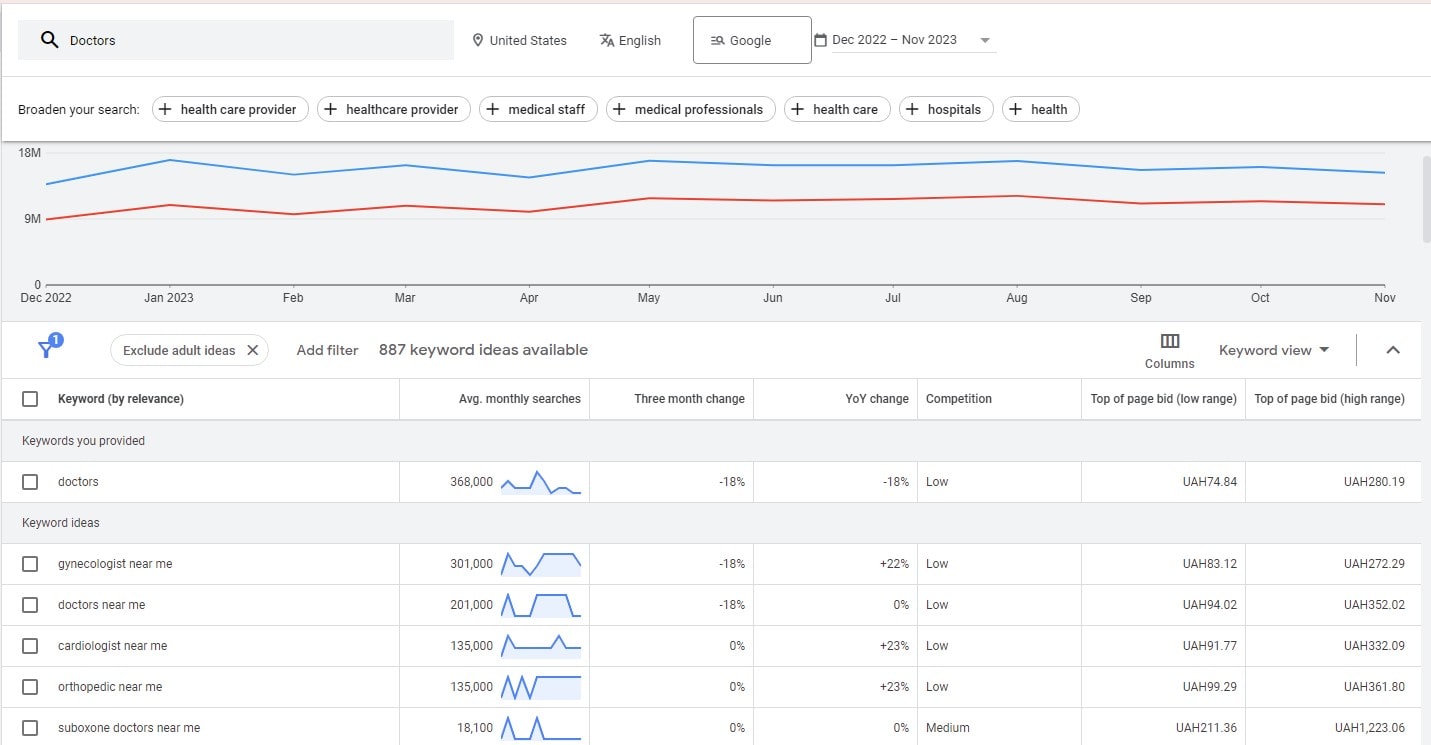
Regarding SEO for doctors, the cornerstone is effective keyword research – a process akin to finding the right diagnosis for a unique patient case. It’s about diving deep into the lexicon of your potential patients and understanding the terms they use when seeking medical advice online. Here’s how doctors can sharpen their SEO strategy through meticulous keyword research:
- Identifying niche-specific keywords: For cardiologists, “heart health tips” or “cholesterol management” are more relevant than generic medical terms.
- Balancing broad and long-tail keywords: While broad terms capture a wide audience, long-tail keywords, such as “pediatric asthma specialist in Miami,” target specific queries.
- Analyzing search intent: Understanding whether a search query is for information, a specific service or a direct appointment booking can tailor content effectively.
- Monitoring keyword performance: Regularly checking how keywords rank and adapting them as search trends evolve ensures ongoing SEO relevance.
- Competitor keyword analysis: Observing the keywords successful competitors use can provide valuable insights into effective SEO practices for doctors.
By integrating these strategies, doctors can craft an SEO campaign that not only ranks well but also resonates with their potential patients’ specific needs and search behaviors. This approach turns SEO from a digital tactic into a powerful tool for patient engagement and practice growth.
Creating Quality Content for Patient Engagement
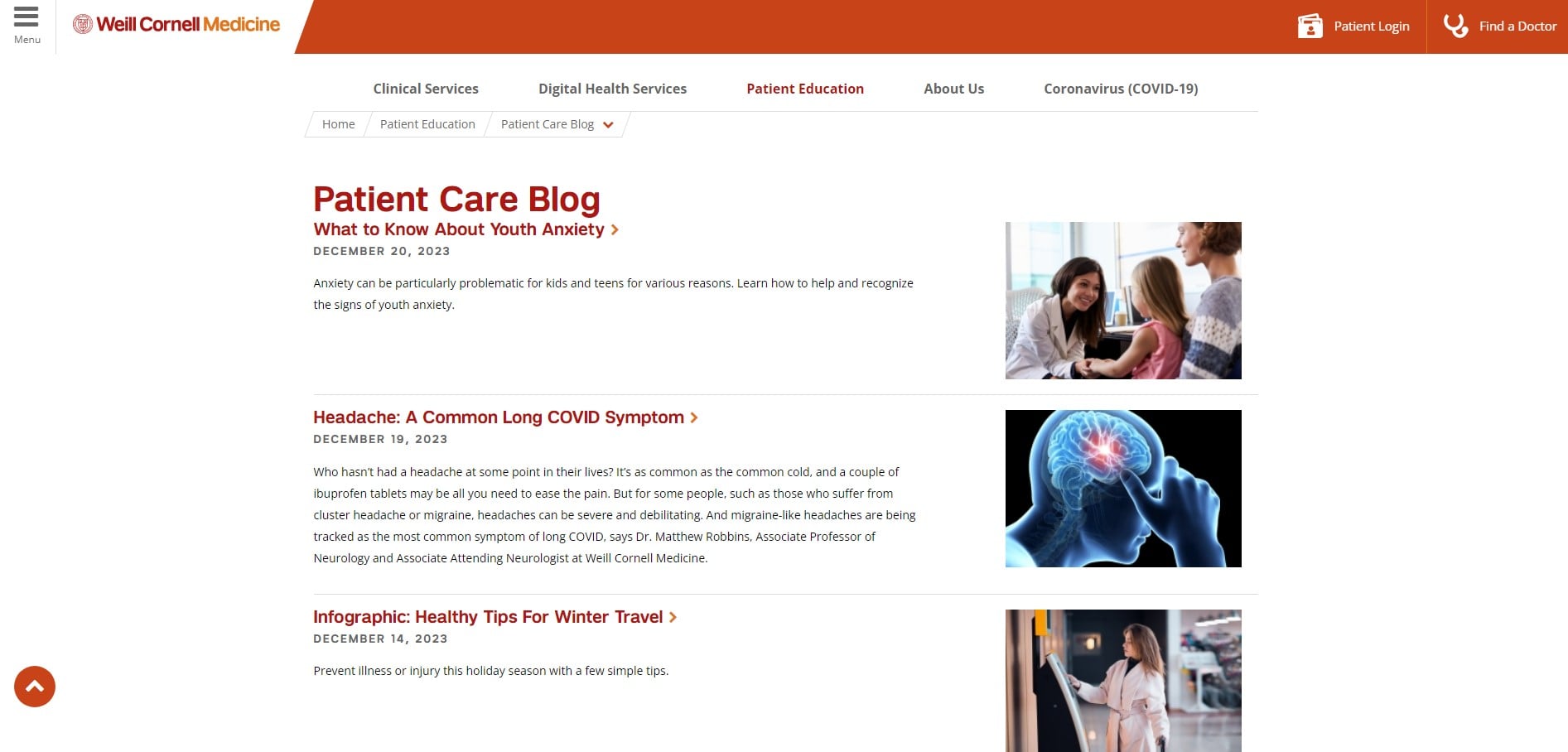
Crafting quality content for patient engagement is an art that intertwines medical expertise with the nuances of human empathy, a vital component of SEO for doctors. This strategy involves creating informative, accessible, relatable content that resonates with patients’ concerns and queries. It’s not just about providing facts; it’s about weaving these facts into narratives that speak directly to the reader’s health journey.
Key elements include:
- Developing articles that address common health issues with clarity and depth.
- Sharing patient success stories to build trust and relatability.
- Offering practical health tips in an easy-to-understand language.
In this endeavor, doctors become storytellers, translating complex medical information into engaging, digestible content. For instance, a dermatologist might create a series of posts on skincare routines, addressing common skin concerns with tips that are both scientifically sound and easy to implement. This method positions the physician as an authority in their profession while also improving SEO by catering to patient needs.
Similarly, a nutritionist could produce content on diet and wellness, offering nutritional advice through engaging infographics or short video clips. This enhances their online visibility through SEO and engages patients in an informative and visually appealing format.
In essence, the goal is to create a content ecosystem that aligns with SEO principles and genuinely enriches the reader’s understanding of health and wellness. This harmonious blend of SEO and patient-centric content fosters a digital environment where doctors are seen as practitioners and compassionate educators dedicated to empowering their patients through knowledge. Such an approach elevates their online presence and deepens the patient-doctor relationship, paving the way for a more informed and healthier community.
Utilizing On-Page SEO Techniques
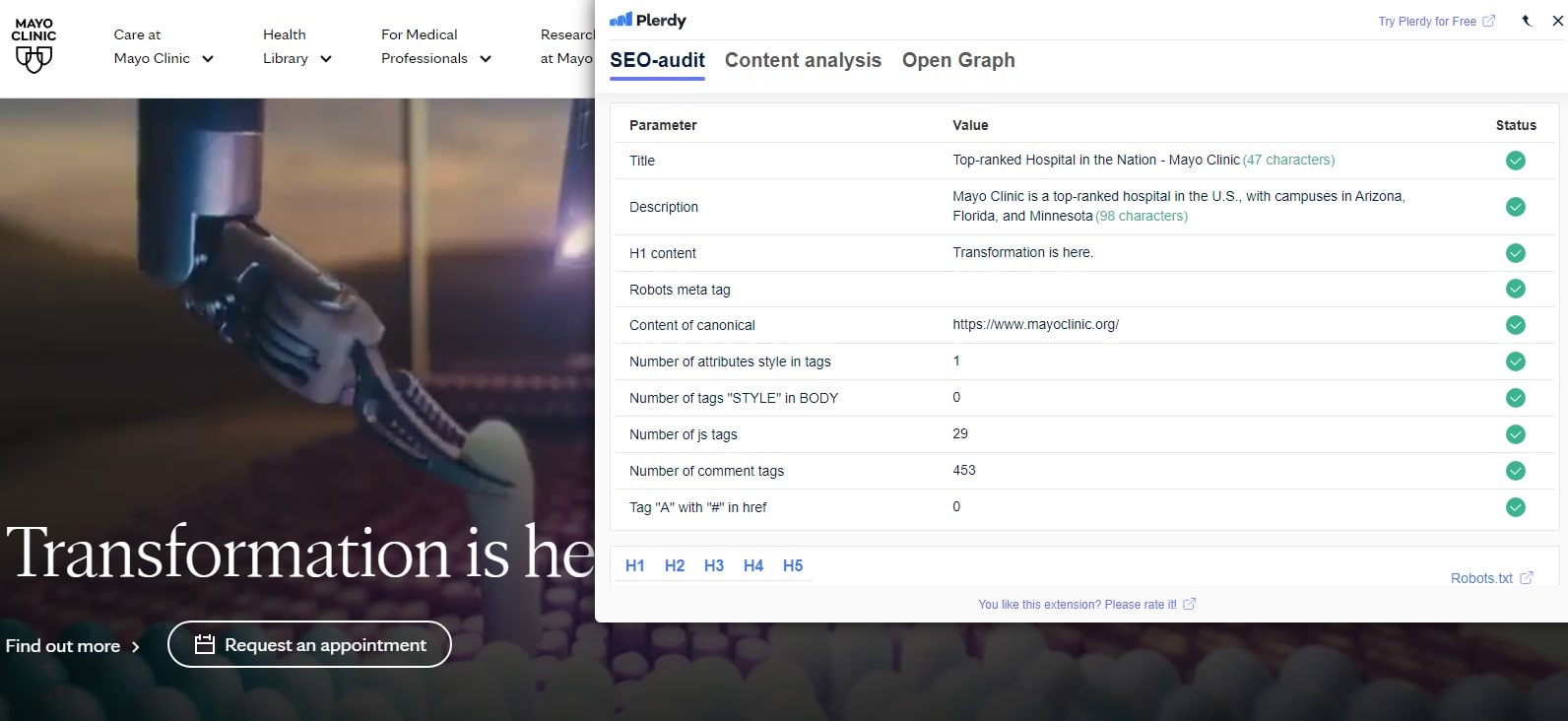
In digital healthcare, on-page SEO is the silent yet powerful conductor, orchestrating a website’s performance to sing in harmony with search engine algorithms. For doctors, mastering these techniques is akin to fine-tuning their online presence, ensuring they resonate loud and clear in the digital space. This process involves meticulous attention to detail, where every element of a web page plays a pivotal role in SEO success.
Essential on-page SEO techniques for doctors include:
- Crafting compelling, keyword-rich titles and meta descriptions that encapsulate the essence of the content.
- Using headers strategically to structure content makes it easier for search engines and patients to navigate.
- Integrating relevant keywords smoothly within the content, balancing search engine requirements with natural readability.
For a cardiologist, for example, their website might feature articles with titles like “Managing Heart Health: Tips and Tricks,” where keywords align with common patient queries. Meanwhile, an orthopedic surgeon might focus on keywords such as “knee pain relief” or “hip replacement recovery,” incorporating these into blog posts, FAQs, and service descriptions.
This approach transforms a doctor’s website from a digital brochure into an informative, engaging, and SEO-optimized platform. It’s a strategy that doesn’t just chase rankings but builds a bridge of knowledge and trust between doctors and their patients. In today’s digital age, on-page SEO for doctors goes beyond mere visibility; it aims to establish their credibility as trusted online healthcare providers by being discovered relevant, helpful, and authoritative.
Optimizing Your Medical Website Structure
Search engine optimization (SEO) for doctors begins with understanding the complexities of a medical website’s structure. It’s about crafting a digital space that speaks to search engines and resonates with patient needs. Think of it as building a bridge between medical expertise and user-friendly digital experiences. This optimization is not just about SEO; it’s about creating a welcoming online home for patient engagement.
Key aspects of optimizing a medical website include:
- Streamlining navigation to guide patients smoothly to the information they seek.
- Organizing content into clear, logical sections enhances both user experience and SEO.
- Ensuring mobile responsiveness is important as many users access healthcare information on the go.
For instance, a pediatric clinic might structure its website with separate sections for child health tips, vaccination schedules, and appointment bookings. This clarity aids SEO and helps anxious parents quickly find the necessary information.
Similarly, a dental practice might have distinct categories for cosmetic dentistry, routine check-ups, and patient testimonials. This well-defined segmentation improves search engine optimization (SEO) by responding to targeted search queries and facilitates easy site navigation for patients.
Structure optimization for medical websites requires both technical knowledge of search engine optimization and in-depth knowledge of patient behavior. It’s about creating a digital environment where information is found and felt – a place where doctors can connect with their patients even before the first appointment. This thoughtful approach to website structure is a vital component in the digital strategy of any healthcare provider, marrying SEO success with superior patient service.
Improving Site Speed and Performance

In the fast-paced digital healthcare landscape, site speed and performance are not just technical metrics; they are vital cogs in the SEO machinery for doctors. A swift, responsive website is like a smooth-running clinic – it signals efficiency and respect for the visitor’s time, enhancing the overall patient experience. For doctors, optimizing website speed is not merely a technical task; it’s a patient care initiative.
Strategies for enhancing site speed and performance include:
- Compressing images and multimedia to reduce load times without compromising quality.
- Streamlining code and leveraging browser caching for quicker page loads.
- Choosing a reliable hosting service that ensures consistent site performance.
Imagine a cardiologist’s website where high-resolution images of heart models load instantly or an orthopedic surgeon’s site where patient education videos play without buffering. These small yet significant improvements in site speed greatly enhance the user experience, indirectly boosting the SEO performance of doctors’ websites.
Improving site speed for doctors’ websites goes beyond appeasing search engine algorithms. It’s about creating a seamless, hassle-free digital journey for patients seeking medical information. By focusing on speed and performance, doctors climb the SEO ladder and build a digital space that mirrors the efficiency and care of their physical practices. This commitment to digital excellence reflects a modern approach to healthcare, where every second counts – both in the clinic and on the web.
Leveraging Local SEO for Your Practice
Leveraging local SEO is a pivotal strategy for doctors aiming to establish a strong presence in their community. It’s about optimizing digital footsteps to ensure that when local patients search for healthcare, their practice shines at the top. For doctors, local SEO is not just a facet of digital marketing; it’s a conduit connecting them to the community they serve.
Key tactics include:
- Ensuring the practice is listed on local directories and maps, making it easy for patients to find them.
- Utilizing local keywords, such as “family doctor in [City Name]” or “pediatrician near me,” to align with specific search queries.
- Encouraging patients to leave reviews, as positive testimonials boost local search rankings and credibility.
For instance, a dentist in Austin might optimize their website for phrases like “Austin teeth whitening,” tailoring their online presence to the local audience. Similarly, a general practitioner in Miami could focus on “Miami health check-ups,” ensuring they appear in searches made by residents.
This strategy transforms SEO into a tool that elevates doctors’ online visibility and embeds them more deeply into the fabric of their local area. In healthcare, where trust and familiarity are paramount, local SEO for doctors goes beyond algorithms – it’s about building relationships and trust within the community. This approach marks a shift in how healthcare providers approach digital engagement, making local SEO indispensable to their practice’s growth and patient outreach.
Mastering Off-Page SEO Elements
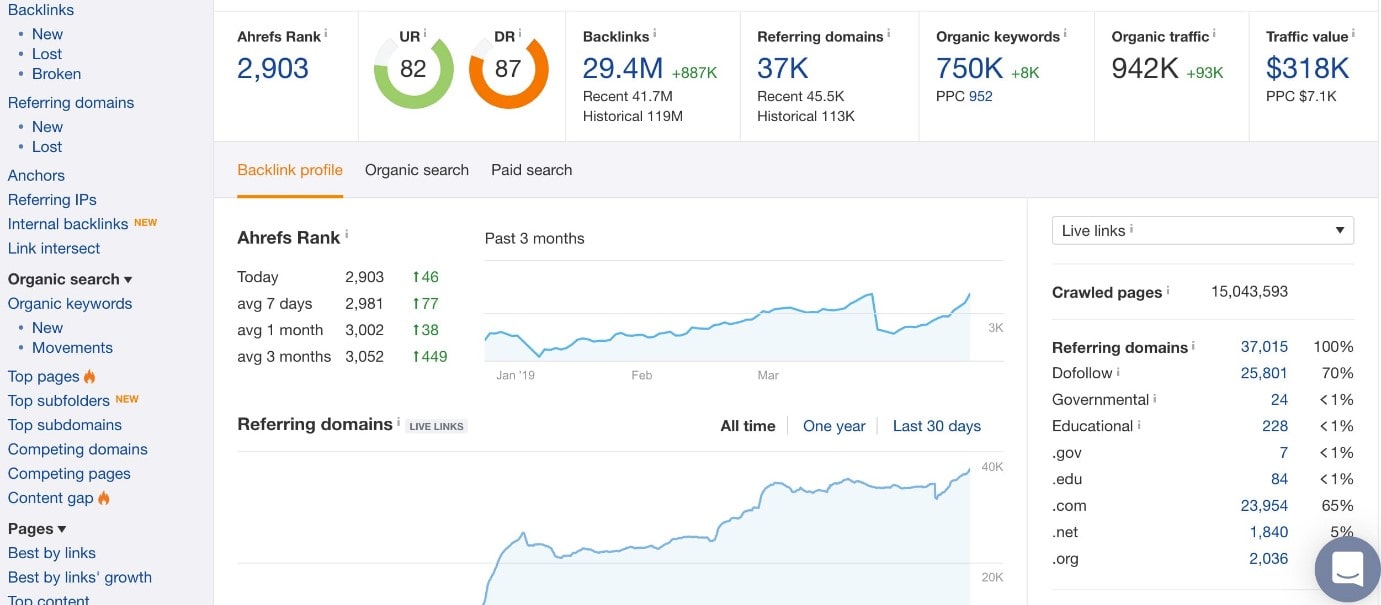
In the vast seascape of digital marketing, mastering off-page SEO elements is crucial for doctors. This journey extends beyond the confines of their websites, exploring the vast expanse of the internet to bolster their online authority. With off-page SEO, doctors can do more than boost their visibility; they can solidify their position as respected leaders in the online medical community.
Essential off-page SEO tactics for doctors include:
- Building a network of quality backlinks from reputable medical sites, enhancing credibility.
- Engaging actively in online medical forums and communities, contributing expert advice and insights.
- Collaborating with other healthcare professionals and websites to create and share valuable content.
For example, a neurologist might contribute to a well-known medical blog, discussing the latest advancements in migraine treatments. Such contributions enrich the blog with expert knowledge and link back to the neurologist’s site, augmenting their SEO strength. Similarly, a pediatrician might participate in online parenting forums, offering professional advice and subtly boosting their practice’s online presence.
Through these off-page endeavors, doctors navigate the complex world of SEO, reaching out to potential patients in diverse digital landscapes. This strategy extends their reach beyond local searches, placing them as authoritative voices in global digital healthcare. In this era where online reputation is paramount, off-page SEO for doctors is not just a strategy; it’s a commitment to extend their healing touch into the digital realm.
Navigating Google My Business for Doctors
Navigating Google My Business (GMB) for doctors is akin to setting up a digital storefront, a crucial step in bolstering their online presence. For doctors, GMB is not merely a listing; it’s a platform that intertwines local SEO with patient engagement. This tool allows doctors to showcase their practice in a way that resonates with search engines and potential patients.
Key strategies include:
- Accurately filling out all details, from practice hours to contact information, ensuring patient accessibility.
- Regularly updating the GMB profile with relevant posts and health tips, enhancing engagement and SEO.
- Encouraging satisfied patients to leave reviews, boosting the practice’s credibility and visibility.
A pediatrician, for example, can use GMB to highlight their child-friendly clinic, posting updates about pediatric care and seasonal health tips. This not only aids in SEO but also positions them as a go-to expert for child health in the area. Similarly, a cardiologist might utilize GMB to share heart health tips, demonstrating their expertise and commitment to patient education.
For doctors, GMB is more than an SEO tool; it’s a digital bridge connecting them with the local community. By effectively managing their GMB profiles, doctors can enhance their practice’s visibility, establish trust, and engage with potential patients more intimately. In the digital age, a well-managed GMB profile is an indispensable asset for doctors, serving as a cornerstone in their online marketing and patient outreach strategies.
Monitoring and Analyzing SEO Performance
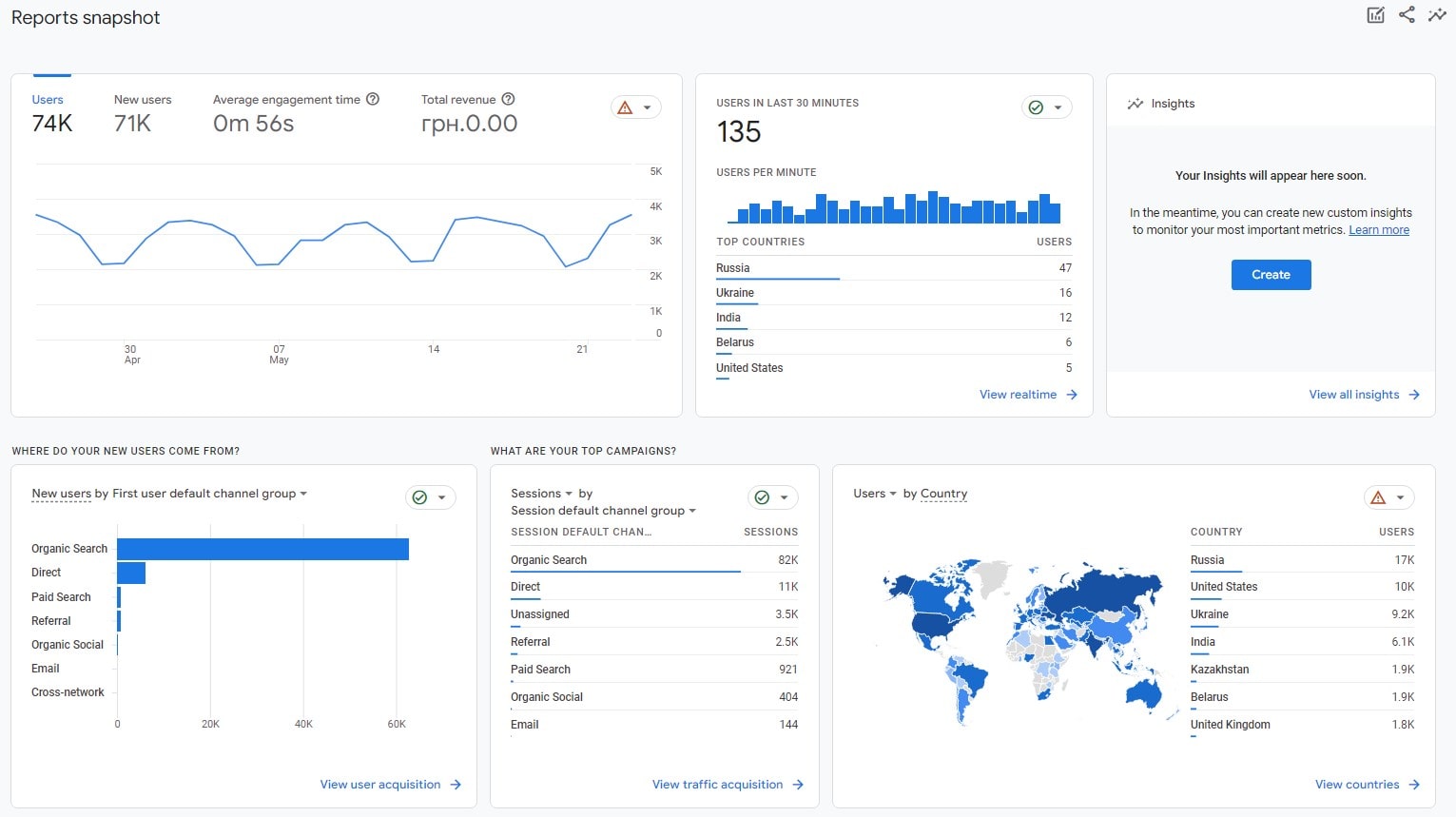
Monitoring and analyzing SEO performance is crucial for doctors in the digital health arena. It’s a process akin to a regular health check-up but for their online presence. For doctors, staying attuned to their SEO health ensures they remain visible and accessible to those seeking medical guidance.
Key elements of this process include:
- Tracking website traffic and user behavior to understand patient engagement.
- Analyzing keyword rankings to gauge the effectiveness of their SEO strategies.
- Reviewing backlink profiles to ensure quality and relevance.
By regularly examining these metrics, doctors can fine-tune their SEO strategies, ensuring their website stays at the forefront of patient searches. For instance, a family physician might notice increased traffic from articles on preventive care, prompting them to focus more on such content. This ongoing analysis is vital, allowing doctors to adapt to changing search trends and maintain a robust online presence. Monitoring SEO performance is more than a technical task for doctors; it’s a strategic approach to staying connected with their digital audience.
Leveraging Social Media for SEO Benefits
Leveraging social media for SEO benefits has become a strategic play in the digital toolkit of doctors. This approach intertwines social engagement with SEO, creating a synergy that amplifies a doctor’s online presence.
Essential tactics include:
- Regularly sharing informative content related to health and wellness, enhancing SEO through active social engagement.
- Using relevant hashtags to increase visibility and drive traffic to their website.
- Engaging with followers to foster community and trust, indirectly boosting SEO.
Incorporating social media into search engine optimization helps doctors reach more people online and build stronger relationships with them. This method transforms social media from a mere communication platform into a powerful SEO ally for doctors, bridging the gap between healthcare expertise and community outreach.
Conclusion
To conclude our investigation into “SEO for Doctors: 10 Tips to Boost Your Rankings,” it is abundantly evident that, in the modern digital world, doctors have an immediate need for SEO. The journey to optimizing a medical website for search engines is not just about sprinkling keywords – it’s a strategic endeavor crafted to ensure doctors stand out in a crowded online space. Here’s a quick recap:
- Tailoring website content to reflect medical expertise and patient needs.
- Enhancing site speed for a smoother user experience.
- Engaging in local SEO to attract patients from specific areas.
- Updating content on a regular basis to ensure it remains current and relevant.
In pursuing SEO excellence, doctors must remember that their website is often the first point of contact for potential patients. An optimized site ranks higher in search results and conveys trust and professionalism. To attract more patients and elevate their practice, doctors should follow these recommendations to ensure their online presence is impactful and apparent. We must now put these realizations into practice. Whether it’s refining keywords or boosting site speed, every step taken towards better SEO is a stride towards success in the competitive world of healthcare. Remember, in the world of SEO for doctors, a well-optimized site is the best prescription for online success.
